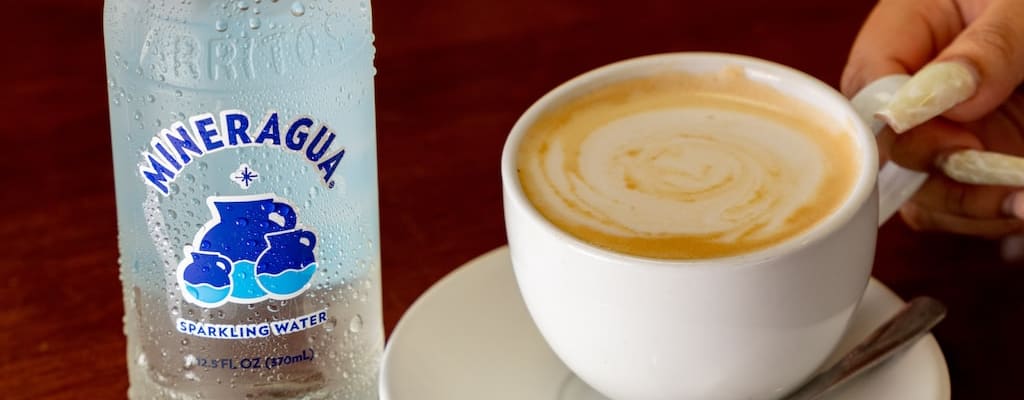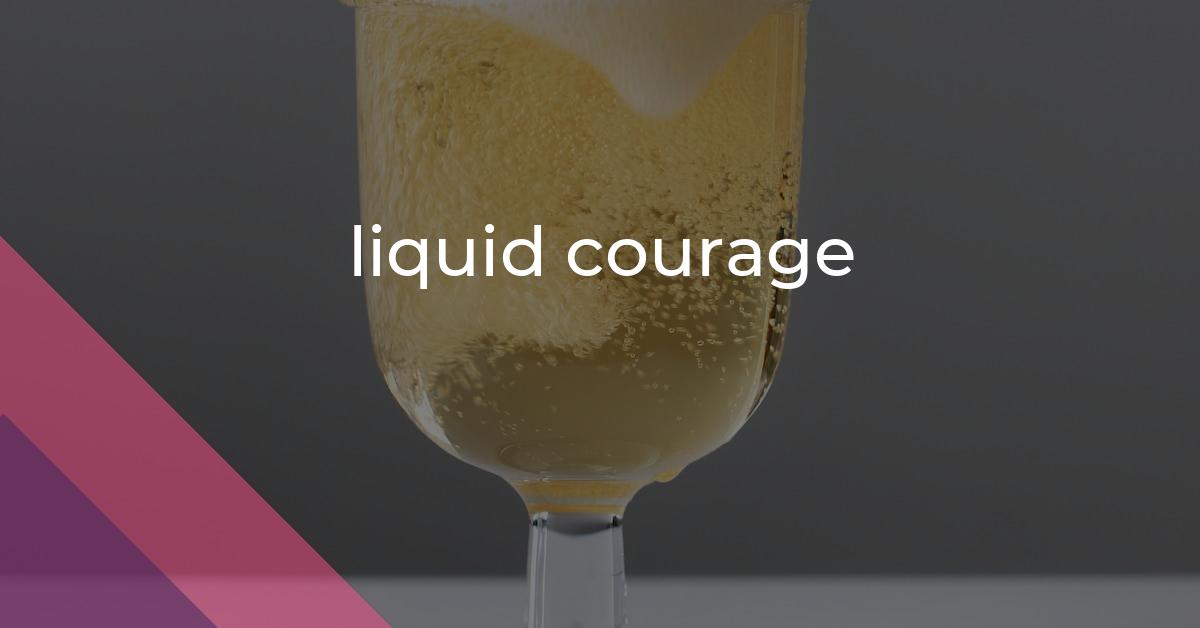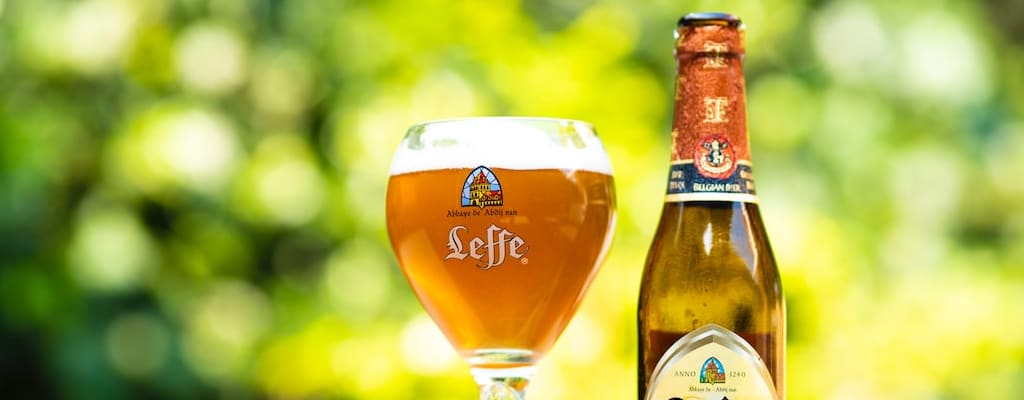liquid courage: Idiom Meaning and Origin
What does ‘liquid courage’ mean?
The idiom "liquid courage" refers to the confidence or bravery that a person gains from consuming alcohol. It implies that alcohol can temporarily boost one's confidence or help them overcome fear or inhibitions.

Idiom Explorer
The idiom "pour oil on troubled waters" means to do or say something to calm a difficult or tense situation.
The idiomatic expression "out of one's face" means to be extremely intoxicated or under the influence of drugs, resulting in irrational or erratic behavior.
The idiom "on the wagon" means to abstain from drinking alcohol or to be not drinking alcohol after a period of heavy drinking.
The idiom "off the wagon" refers to someone who has started drinking alcohol again after a period of sobriety or abstaining from alcohol. This phrase is often used to describe someone who has relapsed and is no longer maintaining their recovery from alcohol addiction.
The idiom "off one's tits" means to be extremely intoxicated or under the influence of drugs.
The idiom "off one's box" refers to someone who is highly intoxicated or under the influence of drugs. It suggests a state of extreme euphoria or disorientation due to substance abuse.
The idiom "no guts, no glory" means that without taking risks or showing courage, there will be no chance for success or achieving greatness.
The idiom "nerves of steel" means being exceptionally calm and composed, especially in stressful or dangerous situations.
The idiom "long drink" refers to a refreshing alcoholic beverage that is typically long in size or volume. It is often used to describe a tall glass of mixed drink, such as a highball or a cocktail served over ice.
The idiom "lion-hearted" is used to describe someone who is brave, courageous, and fearless in the face of danger or adversity. It comes from the idea that a lion is the symbol of bravery and strength.
Curious Essence
The idiom "liquid courage" has become a well-known expression in the United States, particularly in the context of social situations and facing fears. It is believed to have originated in the early 20th century and is used to describe the effect of alcohol on an individual's confidence or bravery.
Combining the words "liquid" and "courage," this idiom employs a figurative language to convey the idea that alcohol can provide a temporary sense of bravery. It suggests that consuming alcohol can diminish inhibitions and allow individuals to face challenging situations with more confidence.
While the term is used humorously, it also acknowledges the fact that the confidence gained from alcohol is often temporary and artificial. It highlights the idea that the bravery exhibited under the influence of alcohol may not be genuine or sustainable in the long run.
As an idiom, "liquid courage" demonstrates the creative use of language to capture a specific meaning. It reflects the complex relationship between alcohol and human behavior, particularly in social contexts. This idiom serves as a reminder that the effects of alcohol can influence one's perception of courage, blurring the line between genuine bravery and the temporary confidence brought about by alcohol.
The idiom "liquid courage" represents the concept of bolstered bravery or confidence under the influence of alcohol. However, it also raises questions about the authenticity and sustainability of such courage. It is a reminder that while alcohol may provide a temporary boost in confidence, true courage stems from inner strength and resilience, untethered to external substances. The idiom invites us to explore the complex interplay between alcohol, confidence, and human behavior, leaving room for contemplation and further examination.
Fear can be a powerful inhibitor in various aspects of life. While some people seem to effortlessly face their fears, others struggle to overcome them. This is where the notion of "liquid courage" comes in.
"Liquid courage" has become a commonly used phrase to describe the effect of alcohol on one's confidence, particularly in social situations. It implies that consuming alcohol can help individuals face their fears and socialize more easily.
The term "liquid courage" encapsulates the idea that alcohol can temporarily alleviate social anxiety and provide individuals with the confidence to interact with others.
This concept is often humorously referred to as "Dutch courage," another idiom related to the effects of alcohol on bravery. The term "Dutch courage" suggests that individuals may feel braver or more confident after consuming alcohol.
Similarly, the idiom "beer muscles" is often used to describe the false sense of strength or courage that arises from alcohol consumption.
These idioms highlight the role alcohol can play in inhibiting fear and boosting confidence, albeit temporarily. However, it is important to recognize that relying on alcohol for courage is not a sustainable solution to facing fears.
Another related idiom is "hold one's liquor" or "hold one's drink," which refers to an individual's ability to consume alcohol without becoming noticeably intoxicated.
This idiom suggests that someone who can "hold their liquor" is able to maintain control and composure despite drinking alcohol. It can imply a certain level of tolerance or the ability to handle alcohol without losing control.
However, it is worth noting that the concept of "holding one's liquor" should not be mistaken for condoning excessive or irresponsible drinking.
Finally, the idiom "in one's cups" is often used to describe someone who is intoxicated or heavily under the influence of alcohol.
This idiom conveys the idea that when someone is "in their cups," they are in a state where their judgment may be impaired due to excessive drinking.
It serves as a reminder that while alcohol can provide temporary courage, it can also lead to loss of control and impaired decision-making.
Example usage
Examples of how the idiom *liquid courage* can be used in a sentence:
- After a few shots of whiskey, he had enough liquid courage to ask his crush out on a date.
- The actor drank some wine to calm his nerves before going on stage, as he believed it provided him with liquid courage.
- She became more confident and outspoken after consuming a few beers, which is often referred to as liquid courage.
More "Alcohol" idioms



